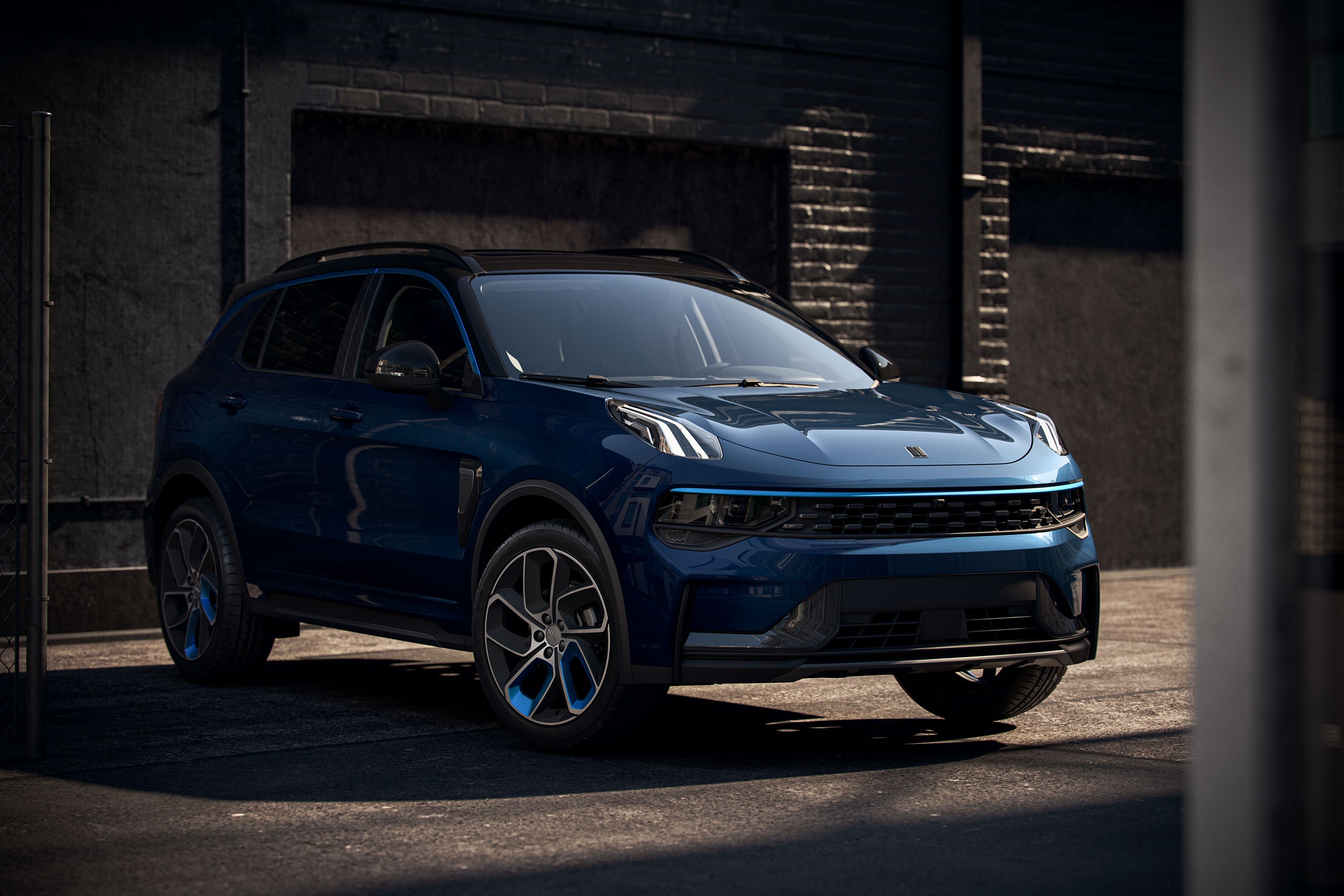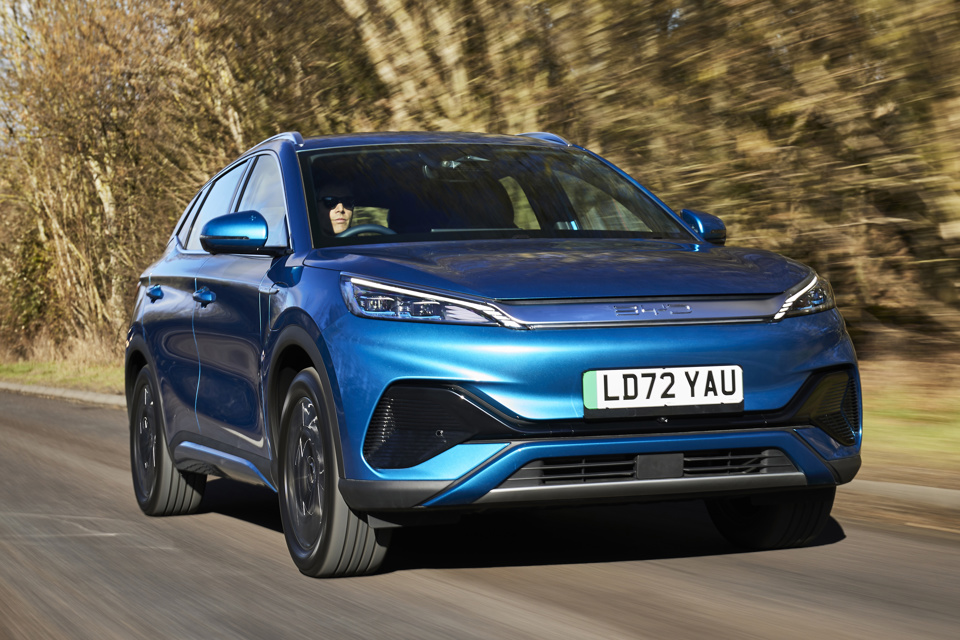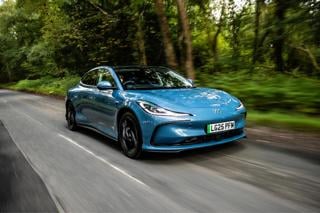Fleets should expect to see downward price pressure on new electric vehicles (EV) as multiple Chinese car manufacturers target the UK market.
While Chinese-owned MG has been dominating the value end of the EV market for a few years now, Great Wall’s Ora has already launched in the UK at the end of last year and other brands like BYD (Build Your Dreams), Lynk and Co, Omoda and Nio are all lining up to offer EVs to UK customers.
LeasePlan was one of the first companies to start offering the new Ora Funky Cat to UK fleet customers in November last year.
Chris Black, LeasePlan commercial director, said: “We displayed the Ora Funky Cat at Fleet and Mobility Live in 2022 and saw significant attention from curious visitors to the stand, indicating growing interest in Chinese EV manufacturers.”
Black said China is reaping the rewards of backing EVs early with around 80% of automotive batteries made in China.
Black said: “Chinese manufacturers have a head start on economies of scale to get the price of EVs down, and of course it means the most expensive components of European EVs aren’t even made in Europe.
“However, it’s not just China that had a head start. Tesla was well ahead of the game with EVs, which has been transformative in the European market.
“Ultimately, cheaper EVs will make the transition for drivers and fleets more affordable, which is a positive. In turn, it pushes European manufacturers to compete (as they already have with Tesla), but this time on price.”
Chery Automobiles confirmed to Fleet News it will launch in the UK under the brand name Omoda in February 2024. It already exports around 450,000 vehicles a year to international markets globally.
It is planning to launch its Euro NCAP five star rated crossover SUV C5 in the UK at the start of next year with a petrol model first, followed by an all electric version.
Chery has already launched in right-hand markets like Australia, which has been used as a test case before expanding to launch sales in the UK.
Victor Zhang, Chery UK manager, told Fleet News: “We’re still confirming a price point for where we want to be positioned in the UK.
“We are looking to partner with a franchised dealer network to establish sales and service points.”
Mark Hankey, Aston Barclay chief revenue officer, explained that with Ford being incentivised to invest more in producing and selling electric vehicles in the US market, it leaves space for Chinese brands to establish and grow “aggressively”.
Hankey said: “A lot of fleet operators are now realising they have to buy electric, but with RVs being uncertain with this product the cheaper brands are an attractive option, especially as the Chinese brands are prioritising EV.”
Hankey added that lead times for Chinese products are “far more manageable”, which suggests that Chinese brands will be added to choice lists if competitor lead times can be trumped.
Shoreham Vehicle Auctions’ managing director Alex Wright agreed that Chinese brands will accelerate sales as they can offer buying terms to leasing and rental companies that other brands can’t, due to ongoing supply issues.
Wright explained: “Car manufacturers will have to decide whether they want to protect their market share and compete with the new Chinese brands that have a very strong proposition and product availability.”
Cyber security concerns
However, not every fleet will be looking to add Chinese products to their choice lists, with one large national fleet that preferred not to be named, telling Fleet News it has a blanket ban on Chinese EVs.
This decision came down to worries around cyber security, heightened by the Government’s decision to ban and remove technology from Chinese communications provider Huawei from the UK’s 5G public networks by the end of 2027.
This ban does already extend to EVs already on sale like MG and Ora, but does not extend to Geely-owned Volvo. This was due to the fleet in question being sufficiently satisfied by Volvo on questions around data collection and cyber security.
LeasePlan’s Black said cybersecurity is not a China-specific problem and that data security should be a concern for all fleets regardless of where vehicles come from.
He said: “Over-the-air updates enable manufacturers to solve vulnerabilities with onboard software, so it’s essential to ensure drivers stay on top of software updates.
“It’s also essential to ensure that personal data is cleared before they are de-fleeted or handed on to other drivers.”
Victor Zhang, Chery UK manager, told Fleet News that from a data privacy and cybersecurity perspective, Omado will be like every other car brand.
He said: “We’re a global business operating in a lot of different international markets and we always follow all local laws and regulations, including those related to data privacy and cybersecurity.”
Chinese brands targetting the UK
BYD has already launched its 261-mile range Atto 3. The brand is partnering with UK franchised dealers to create a sales and service network.
Lynk and Co is owned by Geely, the same Chinese company that owns Volvo. The plug-in hybrid 01 SUV shares the same platform as the Volvo XC40 and a UK launch is planned for this year.

It will be sold directly to customers online with servicing carried out by the Volvo dealer network. Lynk and Co customers can choose to buy the 01 outright, but the vast majority of customers take out a monthly subscription. Customers of the 01 can also choose to “share” their vehicle with other drivers.
For Omoda, the C5 will first launch as a petrol model in the UK in early 2024, followed by an EV version.
The C5 is Euro NCAP five star rated and is compatible with Android Auto and Apple CarPlay operating systems. Multiple EV models, both larger and smaller than the C5, are expected in the future.
A UK launch for Nio is tipped for before the end of 2023 with models like the ET5, ET7 and EL7 already on sale in markets like Germany, Norway and the Netherlands.
Sales will be online subscriptions led with physical locations called “Houses” centred around destination retail meeting spaces. A Nio House in London is likely to be the first location.





















Login to comment
Comments
No comments have been made yet.